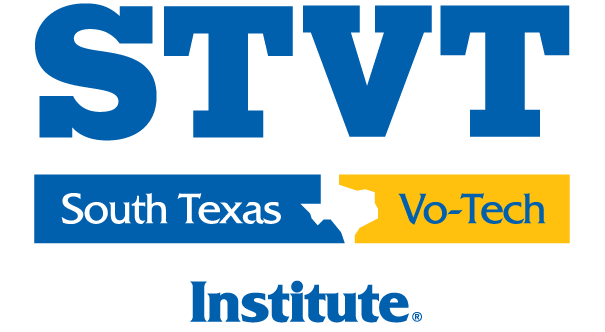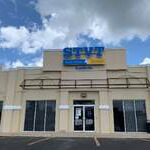Selecting the right HVAC program can help ensure an aspiring technician is prepared for their desired role in the heating, ventilation, and air conditioning industry. The right HVAC program can also help aspiring technicians gain valuable insight into the demands of the industry and build the skills of entry-level professionals. However, with so many programs available, it can be overwhelming to choose the right one.
Here are a few things to keep in mind when researching HVAC or HVAC/R programs to help ensure you’re prepared for your new role after graduation.
1. How the Curriculum Aligns with Your Goals
Typically, HVAC programs can take anywhere from six months to two years to complete depending on the institution. Some programs offer shorter training periods to quickly help aspiring technicians build a solid understanding of heating and cooling systems. Others offer extended training schedules that cover more topics in greater depth.
HVAC programs can teach you the basics of refrigerant reclamation in their air conditioning sections. However, an HVAC and Basic Refrigeration program delves deeper into this subject to better prepare aspiring technicians to service more complex refrigeration systems.
Many employers require HVAC technicians to be certified in refrigerant handling and reclamation before working on air conditioning units. When narrowing your options, consider an HVAC and Basic Refrigeration program that covers Environmental Protection Agency (EPA) Section 608 guidelines to help better prepare you for the exam prior to graduation.
At South Texas Vocational Technical Institute (STVT), our HVAC and Basic Refrigeration program incorporates hands-on training both in class and through simulation labs to help better prepare students for the workforce. The HVAC industry requires a lot of practical skills, and the best way to learn these skills is through hands-on practice.
When choosing an HVAC training program, make sure it offers plenty of chances for you to apply what you learn in simulated labs and hands-on classes. This type of practical experience can help you develop confidence in your new skills and knowledge.
2. Hands-On Learning Opportunities and Industry Approval
When choosing a training program, look for those accredited or approved by credentialing organizations like the National Center for Construction Education and Research (NCCER) or North American Technician Excellence (NATE). This can help ensure the training options on your list meets industry standards of education and training, which can help you become a more competitive applicant.
To earn recognition, credentialing bodies like NCCER and NATE assess the curriculum, instructional quality, and even the facilities of the training programs. This can help ensure the next wave of aspiring HVAC technicians have the technical knowledge, skills, and training to perform well in the workforce. These programs often combine classroom lectures with hands-on learning opportunities, so you can apply your new knowledge and skills in a practical setting with equipment you may later encounter in the field.
3. Certification Preparation
An HVAC and Basic Refrigeration program that teaches EPA Section 608 and Clean Air Act guidelines can help you prepare for these exams while you’re still a student. This can help you save time between earning certification and entering the workforce since HVAC technicians who handle refrigerants as part of their job must have EPA Section 608 certification. An HVAC program that includes EPA Section 608 training can help ensure you’re well-versed in the practical aspects of refrigerant recovery, recycling, and disposal.
Certified technicians can be more attractive to potential employers, as they demonstrate a readiness to comply with industry standards and regulations from day one. This can help increase marketability and prepare you for more advanced roles and responsibilities in your new career.
4. Scheduling Options
Whether you have a full-time job or other time-based commitments, you might believe you don’t have time for a full-time, on-campus program. While online classes can be convenient, on-campus training is a great way to gain hands-on practice with HVAC skills. Some HVAC programs offer day and night classes, so you can pick a schedule that works best for you. Plus, you can choose to enroll on a part-or full-time basis, which gives you control over how many classes you choose to take at once.
At STVT, we provide day, evening, and weekend scheduling options for our HVAC and Basic Refrigeration program, so you can balance your responsibilities and career training.
5. Career Support
Transitioning into the workforce after graduation can seem difficult, but a good Career Services team can help support you during this time. When choosing an HVAC and Basic Refrigeration training programs consider what support the school offers students and graduates. A Career Services team can help you find job leads, revise your resume, and prepare for upcoming interviews. This support can make the switch from student to entry-level professional less stressful.
Some schools also team up with local businesses or have job fairs where you can meet and talk to potential employers.
At STVT, our Career Services team is dedicated to helping our graduates prepare to enter the workforce. As an STVT graduate, our team can help you schedule and prepare for upcoming interviews so you can make a positive first impression on a future employer. Additionally, we can help keep you informed about upcoming job fairs, so you have a chance to connect with local businesses seeking skilled entry-level HVAC technicians.
Our Career Services team can also help you improve your interview skill through mock interviews to help you learn how to leave a positive impression during real interviews. With these resources, STVT aims to help you gain the tools and confidence needed to embark on a successful career in the HVAC industry.
Next Steps
Choosing the right HVAC program means looking at more than just the courses. Think about the learning facilities, certification prep, flexible schedules, and career help each program offers. Good learning facilities give you hands-on experience and industry-relevant training. Certification prep makes sure you meet industry standards. Flexible schedules fit into your life better, making it easier to finish your education. Career support helps you find jobs and move smoothly into the workforce. These things are important for your learning and future career success, helping you make a smart and beneficial choice.
Interested in learning how our HVAC and Basic Refrigeration program can help you reach your goals? Call 866-480-9766 or submit this form for more information.
Disclaimer: Information within this blog is for general information purposes only. Miller-Motte College does not assume or guarantee certification/licensures, specific job/career positions, income earning potential or salary expectations based on the programs offered at Miller-Motte. Career and program information statements in this blog do not guarantee that programs or other information mentioned are offered at Miller-Motte.


